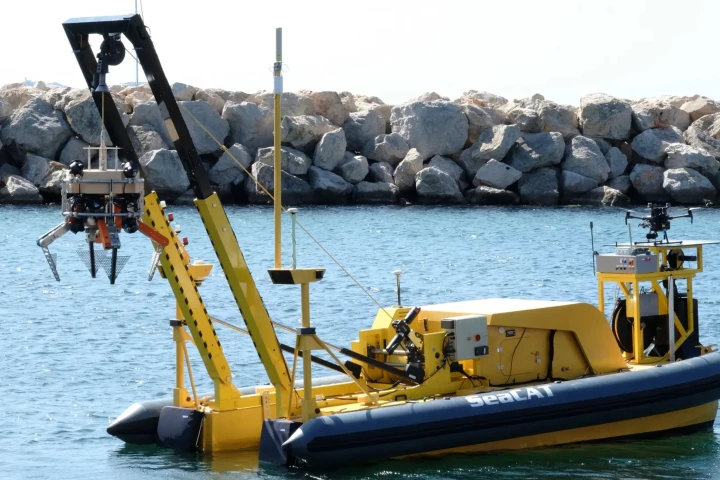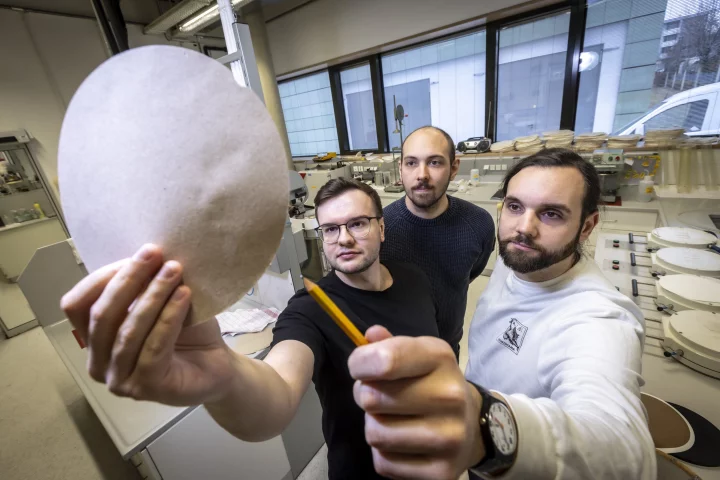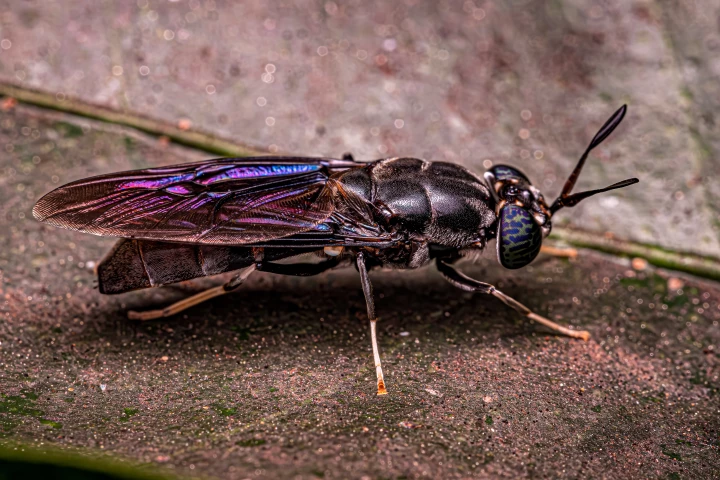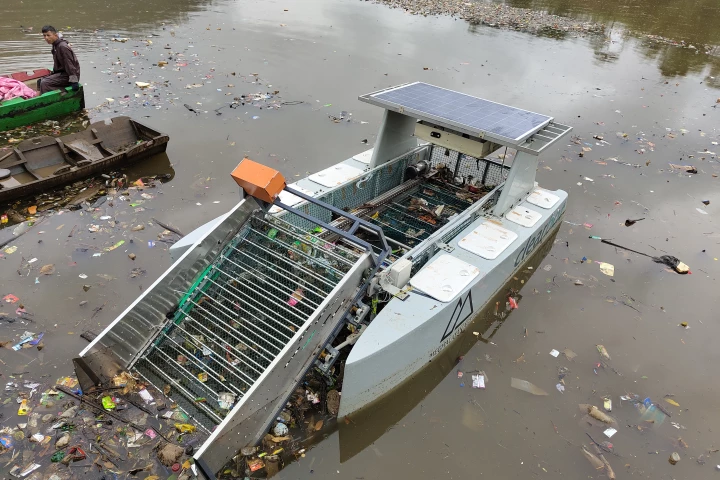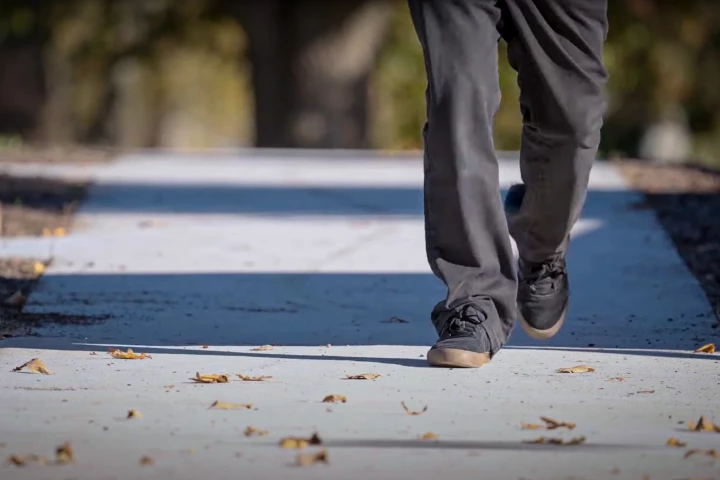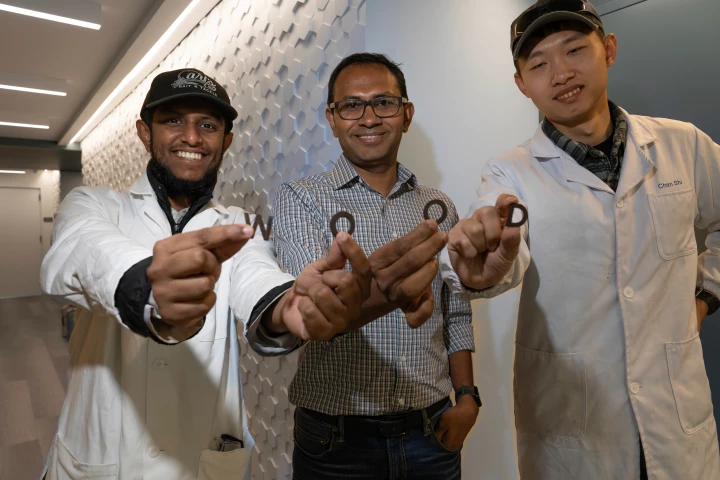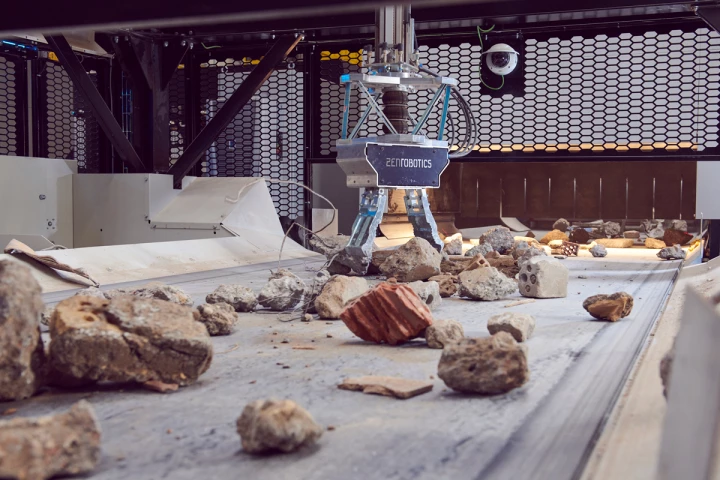Waste
-
The tons of discarded mussel shells generated by the seafood industry may be organic, but they're still very slow to biodegrade in landfills. They may soon find new life, however, sandblasting jeans in the textile industry.
-
A nuclear production facility in Washington state, called the Hanford site, once forged the plutonium that reshaped the world. Now it’s forging glass; a quiet act of undoing at one of Earth’s most contaminated sites.
-
Composting toilets are a great idea, but no one likes to think of the waste sitting there and fermenting. A new eco-friendly toilet gets around that problem by using mushrooms to facilitate the composting process, plus it uses no water to do the job.
-
Imagine an oversized claw machine at an arcade, but instead of trying to grab cheap toys, your prize is the assortment of waste that sinks to the bottom of the sea. That's essentially what an autonomous robot has been doing at Marseille recently.
-
While it's great that many types of paper can now be recycled, textile waste is still mostly dumped or burned. A new technique could change that by combining the two materials, using discarded cotton clothing to boost the strength of packaging paper.
-
Nuclear waste. We've all heard about it but what exactly is it and why is it so important? How big is the problem and is it a problem without a solution? New Atlas takes a look at the basics.
-
"We can feed black soldier flies straight, dirty trash," says a team that's working to turn insects into landfill-clearing biomanufacturing machines that turn regular, dangerous or contaminated garbage into a range of high-value products.
-
Clear Robotics is expanding its fleet of autonomous marine trash collectors. Its Class 3 vessel boasts more onboard storage capacity plus towed barge potential for extended cleanup operations, and has also been designed to tackle invasive weeds.
-
In a world first, the researchers who used waste coffee grounds to make concrete that’s 30% stronger are putting their innovative material to the test by laying sidewalks made of the stuff to see how it fares when it's subjected to foot traffic.
-
Let's face it, eating a reheated meal in a cramped coach seat is never going to be a fine-dining experience, but airlines are now looking to new technology to give us more of what we want, ultimately reducing the current shameful amount of food waste.
-
Scientists have developed a new "ink" that allows objects to be 3D-printed out of wood. The material could reduce the amount of wood that gets wasted in the manufacturing of various products, plus it could utilize existing wood waste.
-
Sorting trash is one of those tasks that people can get pretty tired of, pretty fast. That's why ZenRobotics makes robots that do the job. The company's latest generation is particularly trash-savvy, as it can ID over 500 types of waste.
Load More



